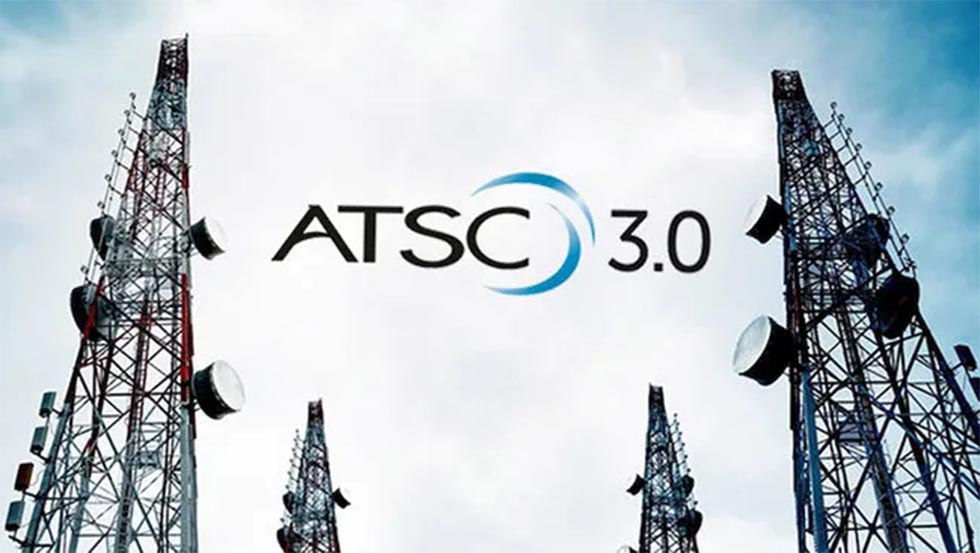LPTV Broadcasters: Costs of ATSC 3.0 Transition Could Force `Many’ Stations Out of Business
In an FCC filing opposing the NAB’s plans to sunset ATSC broadcasts, the LPTVBA said broadcasters should not be forced to convert to ATSC 3.0

The professional video industry's #1 source for news, trends and product and tech information. Sign up below.
You are now subscribed
Your newsletter sign-up was successful
WASHINGTON—The LPTV Broadcasters Association continues to oppose plans for a mandatory cutoff date and transition to Next TV/ATSC 3.0 in a new filing with the Federal Communications Commission that argues excessive costs of the transition may “prove unaffordable for many small stations, potentially forcing many smaller TV broadcasters to go out of business, further eroding truly free OTA TV.”
“LPTV licensees do not wish to be mandated to convert facilities to ATSC 3.0,” the filing concluded. “We strongly believe that TV broadcast facilities should be able to use any standard that best serves the public interest of their communities, be it ATSC 1.0, ATSC 3.0, or 5G Broadcast.”
The LPTVBA represents low power, translator, and Class A television broadcast station, that it says comprise approximately 75% of licensed television stations in the U.S.
In a August 22 filing with the FCC the group admitted that ATSC 3.0 is a major upgrade from the current standard in that it enables 4K resolution, better audio, mobile viewing, and targeted advertising.
But it also mandates “signal signing” to combat piracy. “Signal signing” requires broadcasters to obtain digital certificates, the LPTVBA said. The A3SA, formed by major networks like ABC, CBS, Fox, NBCUniversal, Univision, and the Pearl TV consortium administers this security ecosystem.
The filing complained that “the transition to ATSC 3.0 already imposes significant costs on broadcasters: new encoders, transmitters, and infrastructure can run $300,000 or more per site for even basic setups. But the A3SA/Eon certificates add an additional ongoing expense…For LPTV, these costs could be prohibitive.”
“LPTV operators have argued against mandatory transitions, insisting they should remain on ATSC 1.0 indefinitely to avoid financial ruin. A report from the National Association of Broadcasters (NAB) even suggests creating a fund to help `small broadcast stations’ cover costs, acknowledging the barrier. Without such support, if LPTV stations are mandated to operate in ATSC 3.0, many such LPTV stations may be forced to cease operations in the face of the prohibitive costs. This would diminish free OTA diversity and local coverage, leaving viewers with fewer local options and pushing them toward paid streaming or cable—ironically undermining ATSC 3.0's promise of enhanced free TV.”
The professional video industry's #1 source for news, trends and product and tech information. Sign up below.
The filing also highlighted “the vagueness around certification costs. “This lack of transparency allows proponents to tout ATSC 3.0's benefits—better quality, interactivity—without addressing how it financially burdens small players and enriches the large players with the licensing fees,” the group said. “This `under the radar’ approach masks the David-and- Goliath situation, with the majority of the major full power owners holding all the cards, and everyone else will have to pay to play. The very industry players seeking this mandate are the ones who stand to profit from it via all these licensing requirements.”
“Moreover, DRM enforcement has already sparked controversy, limiting choices among consumer devices and raising access barriers,” the filing concluded. “If LPTV stations can't afford to join, free OTA TV could become a relic, reserved for big broadcasters who encrypt content and prioritize monetization over universal access. If unaddressed, this could spell the "death" of free OTA TV as we know it. If LPTV stations go off the air, such closures would reduce local content, exacerbate the digital divide, and force viewers to pay for alternatives. To mitigate, the FCC should require full disclosure of certification costs, exempt LPTV from mandates, or establish subsidies. Without intervention, ATSC 3.0's promise may come at the expense of the very freedom it claims to enhance.”
the full filing is available here.
George Winslow is the senior content producer for TV Tech. He has written about the television, media and technology industries for nearly 30 years for such publications as Broadcasting & Cable, Multichannel News and TV Tech. Over the years, he has edited a number of magazines, including Multichannel News International and World Screen, and moderated panels at such major industry events as NAB and MIP TV. He has published two books and dozens of encyclopedia articles on such subjects as the media, New York City history and economics.

